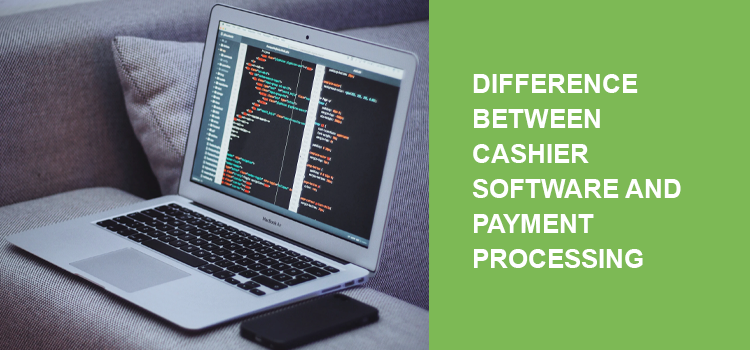With the payment industry landscape evolving by leaps and bounds, new products and technologies come on stage to meet the needs and challenges of a new customer. Thus, the need to accept payments is no longer met with the payment processing only. A new technology, aka Cashier, is here to save the day. And even though the two differ, we often hear our customers confuse one with the other. So, in this article, we’ll address this popular misunderstanding and explain the difference between payment processing and Cashier.
You might also like What is a cashier system and why merchants should use it?
Difference between payment processing and Cashier
- Business relationships.
Arguably the most important difference between the two is having business relationships with acquiring banks. Payment processors establish and maintain collaborative partnerships with acquiring banks, both local and global. This allows them to open merchant accounts on behalf of their clients fast and often – under the most favorable conditions.
Cashier, in its turn, is payment software. The technology vendor providing the software doesn’t have any direct contact with banks. Simply put, Cashier is a connectivity box. It allows getting access to hundreds of payment methods and banks via a single integration with the platform. It’s an incredible solution for large companies or international businesses of any size using a variety of payment connectors. Integrating each of these connectors separately is expensive and time-consuming. And Cashier solves each of these problems with its “all-in-one” approach.
[inlinelink]
Nevertheless, it doesn’t offer assistance with company registration or obtaining a merchant account necessary to be able to accept payment on a site. - Data management.
Collecting, storing, and managing transaction data if you have multiple payment channels is challenging. Several back offices, one for each channel, make it difficult to analyze data and use it to optimize your payment strategies.
And that is one of the main pains Cashier is solving. The system aims to collect all the data from various payment connectors and organize it conveniently inside a single platform.
Some platforms are more convenient and up-to-date than others. Thus, Akurateco Cashier stores all the traffic data from 70+ connectors available on a single page. This way, a merchant can access, process, and use the information seamlessly for the benefit of his business. - A set of features.
Needless to say that when it comes to payment optimization, the more payment channels the better. Clients benefit from gaining access to both local and international payment methods and get to enjoy all the advantages brought to the table by a unique set of features from each connector. That is why clients apply for Cashier – to get full access to a variety of features offered by payment providers.
However, if your business only requires a limited functionality or doesn’t cater to clients from all over the globe, you can easily find a payment processor that’ll meet your specific needs. In this case, Cashier technology isn’t the way to go. A local solution, on the other hand, is.
Now that we’ve established the difference between payment processing and Cashier, let’s figure out what businesses should opt for each of these solutions.
You might also like
Who’s payment processing best for?
- Small and medium-sized businesses.
And even big corporations for that matter as long as they don’t have a large number of payment methods they want to be covered. - Local businesses.
If you cater to “the locals”, you can easily find a payment processor offering its services in your region and go with it. It’ll most likely help you cut the operational costs while still offering all the payment methods you need.
Who’s Cashier best for?
Cashier is a go-to solution for ISOs and PSPs willing to grow conversion and a higher transaction approval rate as well as maximize their revenue.
Moreover, Cashier is a must for merchants looking for a fast and secure way to switch between payment methods and MIDs. More often these are high and medium-risk businesses.
Unfortunately, due to frequent changes in regulations, high-risk processors often lose their acquirers and have to find a new one within the shortest terms. To avoid missed sales in the midst of regulative changes, businesses opt for a Cashier. It guarantees an uninterrupted payment flow thanks to a wide range of payment methods.
This technology is a great solution for companies looking for a platform that conveniently collects, stores, and processes all the transaction data from multiple payment channels in one place.
Finally, Cashier is a good fit for businesses looking to minimize costs by disabling transactions from blocked countries.
Note that Cashier isn’t the best choice for small businesses with a single payment method.
Over to you
Now that you know the difference between payment processing and cashier, take a closer look at the needs of your business. Identify what payment methods you need and what geo you want to cover. Realize whether you want to sell globally or focus on the needs of your local audience. Calculate your budget.
Once you have all of these answers, give this article another read. And then opt for the solution that best meets your needs!





